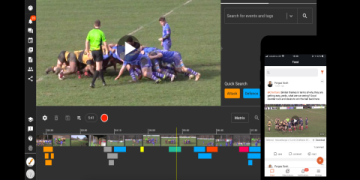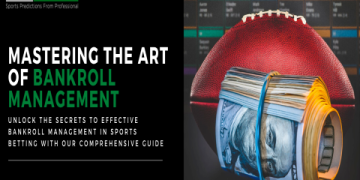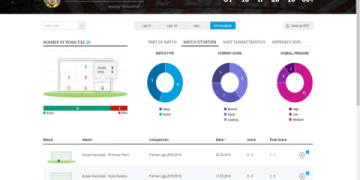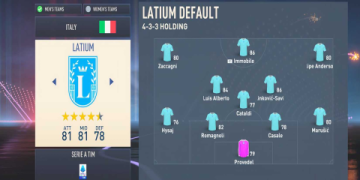# Introduction
Are you passionate about sports and love breaking down games, stats, and player performance? You might be wondering, how do I become a sports analyst? In today’s fast-evolving sports industry, demand for expert insights is soaring. But this career path can feel mysterious or intimidating—unless you have actionable advice. In this in-depth guide, we’ll walk through exactly what it takes, mistakes to avoid, skills you must develop, and real-world success stories.
# What Does a Sports Analyst Actually Do?
The term “sports analyst” covers a wide range of roles. At its core, a sports analyst interprets data, trends, and events in sports, providing information to teams, media, or fans. This could mean crunching numbers for ESPN, appearing on television, contributing to a YouTube channel, or advising a sports team directly.
There are two main branches:
– Media Sports Analysts: Provide commentary and breakdown for networks, podcasts, blogs, or radio.
– Data/Performance Analysts: Work behind the scenes, using statistics and video analytics to help teams gain a competitive edge.
As the industry grows, more organizations value analytical minds. According to the U.S. Bureau of Labor Statistics, jobs in sports media and analysis are projected to grow by about 6 percent from 2022 to 2032 (来源: [BLS.gov]).
# What Education and Skills Do You Need?
There isn’t a single “right” major. Many sports analysts come from backgrounds in journalism, communications, statistics, or sports management. What truly matters is blending sports knowledge with analytical ability.
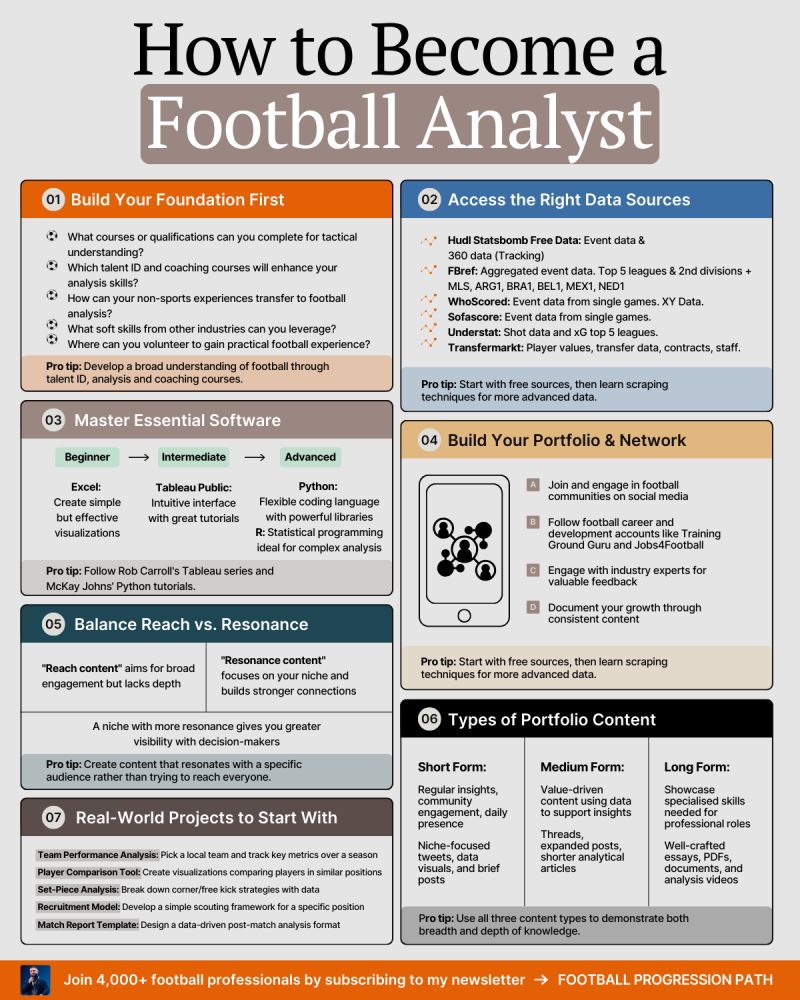
Key skills every aspiring sports analyst must master:
– Advanced understanding of at least one sport
– Data analysis (Excel, Python, R, or Tableau)
– Communication: Can you explain data in easy-to-understand terms?
– Video breakdown and digital editing
– Networking and personal branding
But knowledge alone isn’t enough—a real difference-maker is hands-on experience.
# Step-by-Step Guide: How Do I Become a Sports Analyst?
Ready to chart your course? Here’s a proven five-step action plan.
1. BUILD A STRONG FOUNDATION
Study sports management, journalism, or statistics at college. Take relevant elective courses and stay up to date—sports is constantly evolving.
2. LEARN DATA TOOLS AND ANALYTICS
Teams and networks need professionals who know analytics inside-out. Learn to use Excel, R, or Python. Explore sports-specific software like Hudl or SportsCode.
3. START CREATING YOUR PORTFOLIO
Launch a sports blog, analyze games on social media, or contribute to fan forums. Build a record of your insights and predictions. Our team has seen beginners land interviews just from a thoughtful blog post or viral Twitter thread.
4. GAIN PRACTICAL EXPERIENCE
Pursue internships with broadcast networks, local radio stations, or within college athletic departments. Volunteer for data or video analysis roles, even if unpaid at first.
5. NETWORK RELENTLESSLY
Attend industry events, connect with analysts on LinkedIn, and leverage alumni networks. Many jobs aren’t posted—they’re earned through relationships.
# Media vs. Team Analyst: Which Role Fits You?
Let’s compare the two main career paths using a simple table:
| Feature | Media Analyst | Team/Data Analyst |
|---|---|---|
| Work Environment | Studios, Podcasts, TV, Digital Media | Back offices, Team facilities |
| Key Skills | On-camera presence, public speaking | Statistical software, video breakdown |
| Career Growth | Brand recognition, influencer opportunities | Team promotions, scouting, R&D roles |
| Typical Employers | ESPN, Fox Sports, Barstool, Bleacher Report | NBA, NFL, MLB teams, analytics agencies |
| Salary Range | USD 45,000 – 100,000+ | USD 50,000 – 130,000+ |
# Real-World Example: From Fan to Analyst
Let me share a true story. According to my experience, one of our connections started as a volunteer with his local minor league baseball team. He leveraged his knowledge in Excel, learned basic coding, and began creating weekly stats reports. Over two seasons, his insight got recognized by team coaches—and he was hired full-time! Later, he even consulted for a sports data startup.
This proves you don’t always need a journalism degree to become a sports analyst. Grit, curiosity, and a willingness to learn on the job are just as important.
# Typical Career Path and Salary Expectations
What can you expect once you start? The entry-level salary for a team sports analyst in the US is around USD 50,000, but experienced professionals and TV personalities can earn over USD 100,000. Demand is highest in large cities and professional sports markets.
The industry’s evolution means that flexibility and a love for learning remain crucial. According to Glassdoor, sports data analyst roles have grown by 15 percent between 2021 and 2023, reflecting how much teams are investing in analytics (来源: [Glassdoor Report 2023]).
# Common Pitfalls to Avoid
Here’s an honest warning: many aspiring sports analysts get stuck because they ignore networking, underestimate the importance of communication, or simply stay in their comfort zone.
Not every sports fan can become a credible analyst—learning how to interpret stats, understand strategy, and deliver clear insights is essential.
# Warning: Common Mistakes Aspiring Sports Analysts Make
– THINKING PASSION ALONE IS ENOUGH: Love for sports is great, but employers demand real technical and communication skills.
– IGNORING PERSONAL BRAND: Without an online portfolio or presence, your insights may never be noticed.
– NOT UPDATING YOUR SKILLS: Analytics tools evolve, teams use new software—don’t get left behind.
– UNDERVALUE NETWORKING: Jobs rarely fall into your lap. It’s about who knows your work.
# Essential Checklist: Your Roadmap to Becoming a Sports Analyst
1. Choose sports-focused or analytics-oriented college coursework early.
2. Commit to learning key data tools (Excel, Python, R, or industry-specific software).
3. Start sharing your insights publicly via blog, social media, or YouTube.
4. Seek out internships/volunteer work with teams, local media, or digital networks.
5. Build a personal brand; engage with sports communities online.
6. Attend workshops and sports conferences to grow your network.
7. Keep your skills updated with the latest analytics trends and tools.
8. Practice explaining complex data for non-experts—communication sets you apart.
9. Avoid common pitfalls: don’t rely only on passion, and never stop learning.
10. Stay persistent—most analysts build their career through consistent small wins.
# Conclusion
So, how do I become a sports analyst? The answer lies in a smart blend of education, real-world experience, technical skills, and relentless networking. Sports analysis is more accessible—and competitive—than ever before. By following this guide and staying proactive, you’ll be well on your way to a rewarding, high-impact career in the sports industry. Whether you dream of ESPN, your favorite pro team, or launching your own platform, the path starts today.

